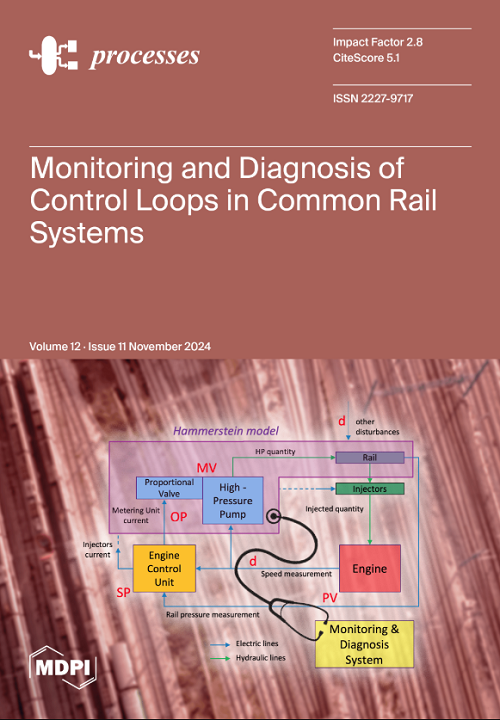基于模糊逻辑的智能旋转柔性机器人内部模型控制
IF 2.8
4区 工程技术
Q2 ENGINEERING, CHEMICAL
引用次数: 0
摘要
最近,柔性机械手的应用越来越广泛,也越来越重要。这是因为在加油操作、检查和维护活动等各种任务中,对灵活性的要求越来越高。然而,这些机器人都是欠驱动系统,具有非线性行为和动态耦合相互作用的特点,从而增加了控制过程的复杂性。主要的控制目标是实现对所需位置的精确跟踪,同时减少链路中出现的振荡。因此,本文建议采用模糊逻辑方法,结合内部模型控制(IMC),将调整和自适应控制融为一体。建议的控制器利用了传统 IMC 的智能技术、简单结构、鲁棒性和易于调整的优势。在本研究中,三角形和梯形成员函数(MFs)都被用于创建一对基于 Mamdani 方法的模糊逻辑控制器(FLCs)。这些控制器用于动态调整 IMC 的参数,与传统 IMC 方法中使用的固定参数形成鲜明对比。在有干扰和无干扰的情况下,通过模拟和实际实验,展示了所建议的基于自适应的模糊 IMC (AFIMC) 的有效性。结果表明,该技术在实现控制目标和拒绝干扰方面优于传统的 IMC。本文章由计算机程序翻译,如有差异,请以英文原文为准。
Intelligent Fuzzy Logic-Based Internal Model Control for Rotary Flexible Robots
Recently, there has been widespread and vital adoption of flexible manipulators due to their increased prevalence. This is attributed to the growing demand for flexibility in various tasks like refueling operations, inspections, and maintenance activities. Nevertheless, these robots are under-actuated systems characterized by a nonlinear behavior and present dynamic coupling interactions that contribute to the complexity of the control process. The main control objective is to achieve an accurate tracking of the desired position while simultaneously reducing oscillations occurring in the link. Therefore, this paper proposes integrating the tuning and adaptive control by employing fuzzy logic methodology in conjunction with internal model control (IMC). The suggested controller takes advantage of intelligent techniques, simple structure, robustness, and easy tuning of the conventional IMC. Both triangular and trapezoidal Membership Functions (MFs) are applied in this study to create a pair of Fuzzy Logic Controllers (FLCs) based on the Mamdani method. These controllers are employed to dynamically adjust the parameters of the IMC, in contrast to the fixed parameters used in the conventional IMC approach. The effectiveness of the suggested Adaptive-based Fuzzy IMC (AFIMC) is showcased through simulation and practical experimentation, in scenarios both with and without disturbances. Results indicate that this technique outperforms conventional IMC in achieving control objectives and rejecting disturbances.
求助全文
通过发布文献求助,成功后即可免费获取论文全文。
去求助
来源期刊

Processes
Chemical Engineering-Bioengineering
CiteScore
5.10
自引率
11.40%
发文量
2239
审稿时长
14.11 days
期刊介绍:
Processes (ISSN 2227-9717) provides an advanced forum for process related research in chemistry, biology and allied engineering fields. The journal publishes regular research papers, communications, letters, short notes and reviews. Our aim is to encourage researchers to publish their experimental, theoretical and computational results in as much detail as necessary. There is no restriction on paper length or number of figures and tables.
 求助内容:
求助内容: 应助结果提醒方式:
应助结果提醒方式:


